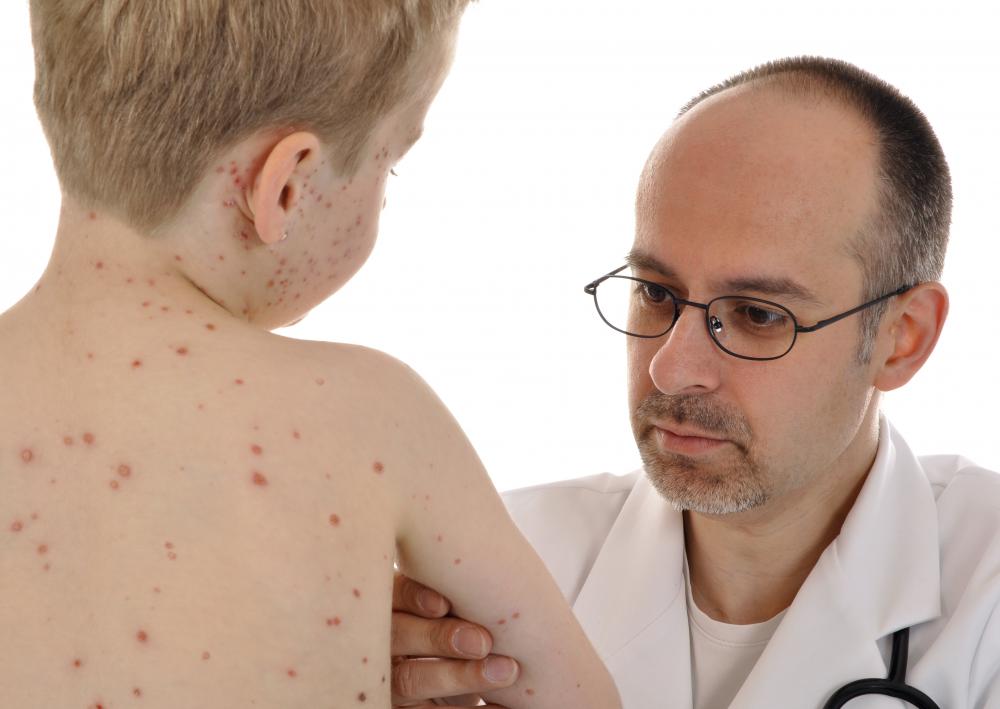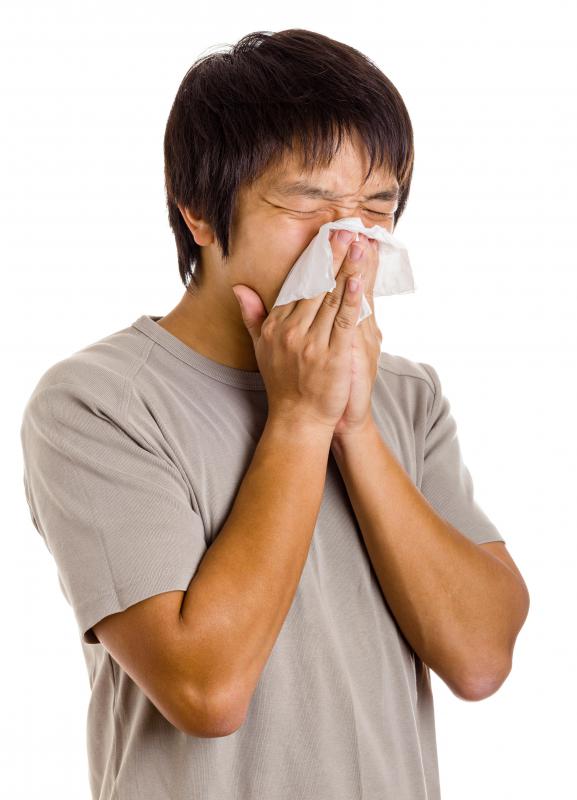At TheHealthBoard, we're committed to delivering accurate, trustworthy information. Our expert-authored content is rigorously fact-checked and sourced from credible authorities. Discover how we uphold the highest standards in providing you with reliable knowledge.
What is Contagious Disease?
A contagious disease is a disease that you can catch from another person. Often times, just being close to the person, having contact with the person, or touching something the person touched is enough for you to contract the disease. These diseases aren't necessarily dangerous or life-threatening, though some can be. For instance, the common cold is not usually dangerous but the HIV virus, which causes AIDS, is.
Many times, a contagious disease is spread through the transfer of bodily fluids, such as saliva or blood. Some pathogens that can cause you to get sick are harbored in droplets of saliva. The act of coughing and sneezing causes those droplets to fly through the air and possibly infect someone else. Even sneezing or coughing in a hand can be a vehicle for spreading disease because the pathogens can be transferred to an object when an infected person touches it. You can even transfer pathogens by shaking hands with a person after you have coughed or sneezed into it.

Some countries have virtually eliminated a number of the more deadly contagious diseases through the use of vaccines. A vaccine solution made up of a weak or dead version of the pathogen that causes the contagious disease. In some cases, the vaccine may also be just a part of the pathogen. The vaccine is introduced into the body a healthy person, many times by injection. The objective is that the body will identify these diseases and form antibodies to battle the pathogen.

The ultimate goal of this method is that the inoculated individual will become immune to subsequent exposure to the contagious disease. Though many versions of vaccines involve injection, some, such as the flu vaccine, can also be administered by use of a nasal spray. Whether you get a vaccine through one method or the other depends on age and other factors. Either vaccination process may have some side effects associated with it, so it is important to learn what to expect. Some examples of a contagious disease whose spread have been controlled by the use of a vaccine are chicken pox, rubella, mumps, and measles.

Though it may not be possible to completely eliminate the pathogens that cause contagious disease, there are some steps you can take to limit your changes of contracting one. Washing your hands can often eliminate germs on your hands. When you sneeze or cough, remember to do so within the crook of your arm. Doing this will prevent germs from getting onto your hands and will prevent them from becoming airborne. It is also important to limit exposure to any bodily fluids, meaning no sharing needles, having indiscriminate intercourse, or touching bodily fluids or items contaminated with bodily fluids without the proper protection.
AS FEATURED ON:
AS FEATURED ON:

















Discuss this Article
Post your comments